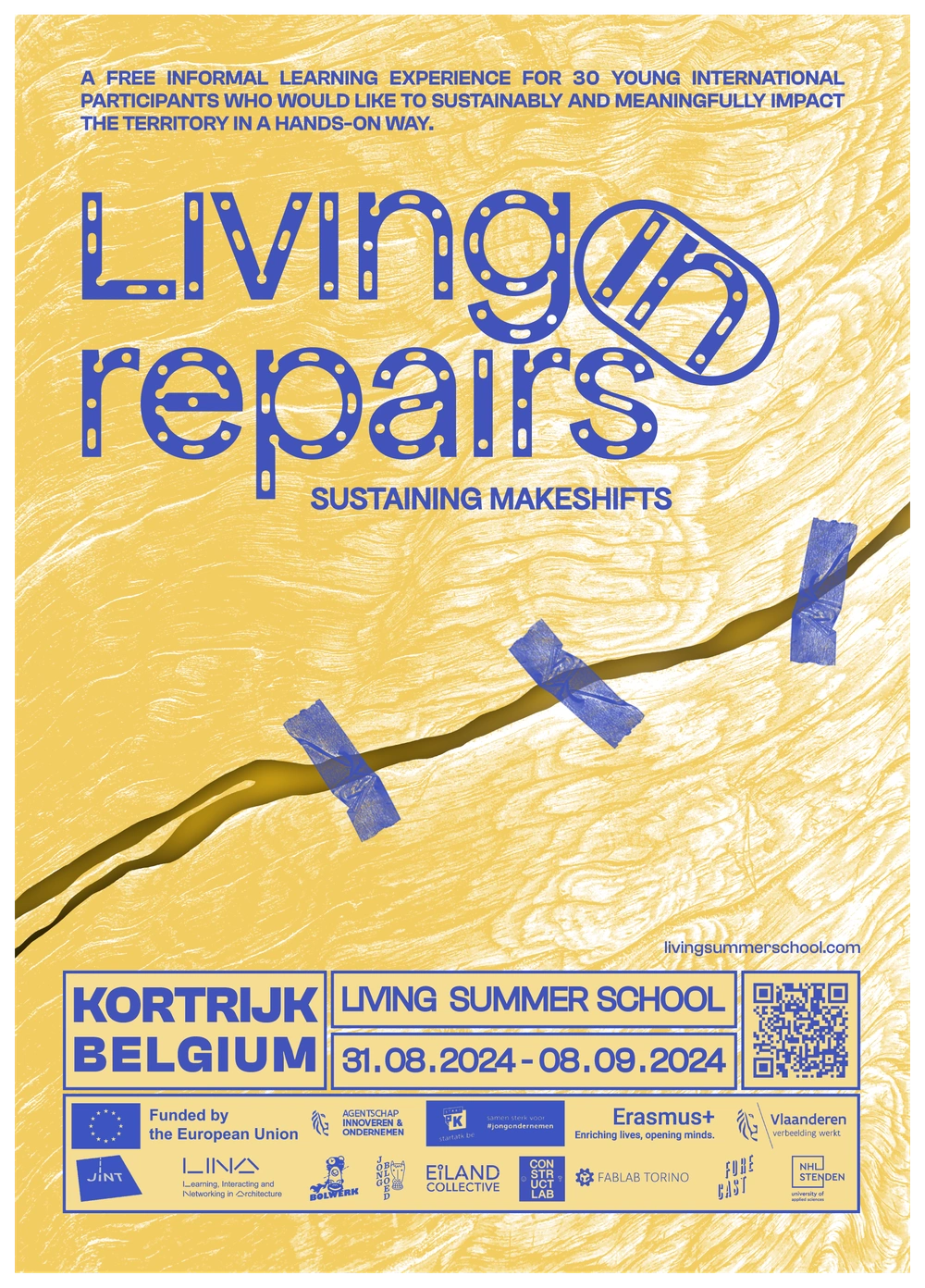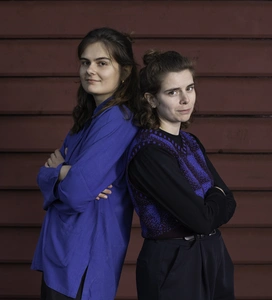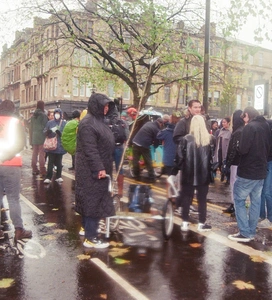LSS 2024: Living (in) Repairs

From 31 August to 7 September 2024, Bolwerk hosted the latest edition of the Living Summer School (LSS) in Kortrijk under the theme Living (in) Repairs. Set across three adaptive construction sites, this year’s program continued LSS’s commitment to experimental, site-specific pedagogies—blending territorial inquiry, spatial prototyping, and collective maintenance. In 2024, the school deepened its engagement with the LINA platform, welcoming two fellows and several other members as embedded contributors and collaborators.
First, LINA Fellow Bernadetta Budzik, returning from her participation in LSS 2023, co-facilitated the Wildernis brief at an adventure construction playground in a forest, introducing methods of qualitative mapping and ecological care. Meanwhile, three members of Soundcamp—Sasha Baraitser Smith, Mort Drew, and Grant Smith—established a live community radio infrastructure across the school’s sites. Through open transmissions, sonic conversations, and site-specific soundboxes, Soundcamp introduced listening as a spatial, relational practice.
Also, in parallel to the summer school, the LSS hosted the two-day conference Navigating Informal Education on 5–6 September 2024. Framed around the metaphor of collective navigation, the conference gathered over a dozen contributors and institutions engaged in rethinking pedagogical formats. Two LINA fellows from Spolka joined four LINA members (Theatrum Mundi, Forecast Platform, Art Academy of Latvia, LIFT! Spatial Initiative) and other local and European initiatives to reflect on informal education. Performative moments, collective meals, site walks, and a culminating radio performance and a pool party activated the idea of education as a porous, embodied, and repair-oriented process. Together, these activities exemplify the Living Summer School’s role as a platform for situated pedagogy and distributed authorship—where emerging spatial practitioners, institutions, and local partners come together not only to build structures, but to rehearse ways of living and learning otherwise. LINA’s support in 2024 was pivotal—not only in hosting fellows, but in enabling new alliances, amplifying voices, and reinforcing the school’s commitment to experimentation, regeneration, and degrowth in architectural culture.
Background and Theme
The 2024 edition of the Living Summer School centred on the theme of repairs, engaging with architecture not as a sole act of creation, but as a situated practice of care, adaptation, and responsiveness. This thematic shift was rooted in the long-term evolution of three architectural interventions initiated during the 2023 edition (Living Makeshifts), where participants had designed and built small-scale structures using recycled materials and timber.
Rather than treating these interventions as finished works, LSS deliberately left them in place—to be inhabited, maintained, and reinterpreted over the course of the year by local partners. In this “cooling period,” the prototypes were tested, tweaked, dismantled, and, in some cases, radically reimagined. What emerged was not just a feedback loop, but a living archive of needs, aspirations, and contextual shifts—one that proved invaluable for LINA fellows, LSS participants, and organizers alike.
In 2024, participants returned to these sites—not to rebuild from scratch, but to respond. They transformed a dry toilet on a trailer into a fully habitable tiny house. A shipping container was adapted into a shelter for a community gardening group. And a previously rigid nature-preservation enclosure was reworked into an open-ended, child-friendly playscape. These gestures of architectural maintenance were not only technically instructive, but also ethically charged foregrounding slowness, reuse, and attentiveness as core architectural competencies.
Collaboration with LINA Fellows
Two LINA fellows were actively involved in the 2024 Living Summer School: Bernadetta Budzik and three members of the collective Soundcamp. Their fellowships enabled two distinct yet complementary forms of engagement: Bernadetta as a co-facilitator of the Wildernis brief, and Soundcamp as the initiators of LSS Radio, a live, site-embedded sound ecology.
Bernadetta Budzik: Co-Facilitation of the Wildernis Brief
Bernadetta Budzik’s involvement in the 2024 Living Summer School extended a long-standing
relationship with Bolwerk and the LSS community. Having participated in the 2023 edition, she remained engaged throughout the year—contributing to the publication, participating in alumni feedback sessions, and rejoining in 2024 as a facilitator.
Her LINA fellowship research, focused on the more-than-human as a site of protest and the intersections between social justice and ecology, resonated closely with one of LSS’s partner sites: Wildernis, an adventure construction playground on a forested island in Kortrijk, stewarded by the association #LZSB. Known for their activist and cultural work in public space, #LZSB became an ideal context for Bernadetta’s methods of site-specific inquiry and playful resistance.
Starting in spring 2024, Bernadetta took part in a two-day facilitator retreat to co-design briefs, lead fieldwork, and define pedagogical methods. Working alongside partners from #LZSB and facilitators from ConstructLab, she helped shape a process that emphasized informality, care, and curiosity. Over the following months, she sustained the collaboration online, gradually co-authoring the experience that would unfold on the island.
At Wildernis, Bernadetta guided participants in seven spatial interventions that built upon, hacked, or repurposed the 2023 constructions—now weathered, contested, and contextualized by a year of use. Participants were encouraged to use natural and recycled materials sourced on-site and to work not toward finished structures, but toward open-ended tools for play and exploration.
She introduced mapping exercises and sensory methods, such as collecting and categorizing found objects in transparent bags, to help participants read the ecological and social rhythms of the island.
These methods allowed for a subtle but powerful reframing of the space—from a playground to a living ecosystem of stories, species, and memory. This approach left a deep impression on participants. Cristina Macelli reflected on the experience as a personal rediscovery of play, not as leisure, but as a method of repair, a way of “mourning” and reconnecting with unstructured, intuitive modes of being. She described Wildernis as “a blueprint to our public spaces,” offering a gentle call to imagine cities as cohabitated, playful ecosystems. Alessia Liscia captured the experience through a fable-like narrative, portraying the island as a world where “everything lived in harmony,” guided by children, plants, and animals. Her allegorical storytelling reflected the project’s ethos: protection through immersion, learning through wonder, and architectural care as storytelling.
Bernadetta presented the work during the Public Forum and is currently preparing a piece for the upcoming LSS 2024 Magazine, to be published ahead of the 2025 edition.
Soundcamp: Ecologies of Sound
The 2024 Living Summer School welcomed three members of the collective Soundcamp: Mort Drew, Sasha Baraitser Smith, and Grant Smith. Their participation as LINA fellows marked the first time a dedicated sonic practice was embedded into the LSS framework, opening a new dimension to how we sense, share, and shape spatial experience.
From the outset, the collaboration was guided by a shared curiosity about cultivating an ecology of
sound. Planned over four online meetings in the spring and early summer of 2024, the project aimed to position live radio not just as a medium of communication, but as a pedagogical and spatial tool. This culminated in LSS Radio —a week-long, site-embedded transmission platform that offered a porous membrane between the three construction sites, the living quarters, and the broader public.
At the start of the summer school, Soundcamp facilitated the co-construction of ten small, mobile soundboxes with participants. These soundboxes, distributed across the sites and communal spaces, transmitted live audio throughout the week—capturing snippets of conversation, footsteps, birdsong, and tool sounds in real time. They created a subtle but constant auditory thread that connected participants beyond visual or verbal means, fostering new attentions to context, communication, and cohabitation.
Throughout the week, several informal discussions took place between LSS participants and Soundcamp members, exploring the politics and poetics of sound. These conversations touched on listening as a form of care, noise as negotiation, and the potential for live audio to complicate hierarchies of visibility and voice. The idea of “sound ecologies” emerged not as a metaphor but as a lived practice—deeply entangled with the rhythms and atmospheres of the sites.
Soundcamp’s contribution extended into the Navigating Informal Education conference, where Sasha Baraitser Smith participated both as a speaker and as a performer. In a collective final act, Soundcamp hosted a live radio performance to conclude the conference, weaving together audio fragments recorded over the week—spontaneous laughter, group reflections, nocturnal ambiance—offering a sensorial account of informal education’s textures. This was a rare gesture, as Soundcamp typically eschews recordings in favor of ephemeral, real-time transmission. The choice to share these clips was framed explicitly as an experiment in how informality can be documented without being fixed.
In parallel, the group wrote timestamped commentaries during their radio shifts—short, live-written reflections embedded in the stream. These will be featured as a written piece in the upcoming LSS Magazine, capturing the affective dimension of listening and broadcasting during the summer school.
Together, Soundcamp’s presence shifted the school's tone—away from the visual and toward the sonic, from narration to resonance. Their work helped attune both facilitators and participants to the invisible threads that hold a collective learning environment together.
Related fellows

